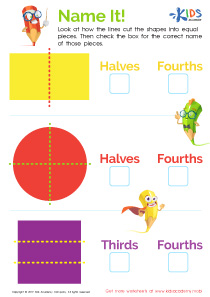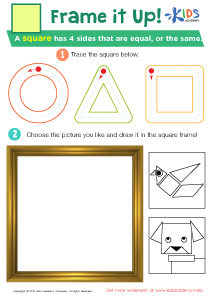Shape identification Grade 2 2D Shapes Worksheets
3 filtered results
-
From - To
Discover engaging Shape Identification worksheets for Grade 2, designed to enhance students' understanding of 2D shapes! Our collection features fun, interactive activities that help young learners identify, classify, and describe a variety of shapes including squares, circles, triangles, and more. Each worksheet encourages critical thinking and boosts confidence in geometry skills, making math both fun and educational. Perfect for classroom use or at-home practice, our printable resources cater to diverse learning styles, ensuring every child can succeed. Dive into the world of shapes and watch your students excel with our comprehensive, easy-to-use worksheets! Start exploring today for brighter mathematical futures!
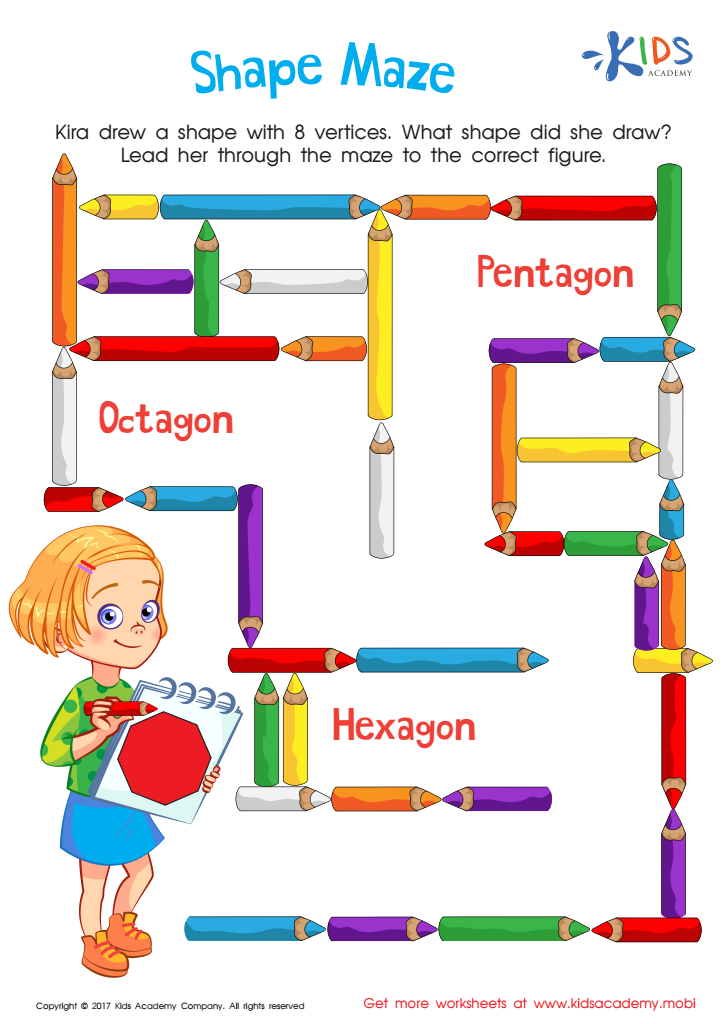

Shape Maze Worksheet
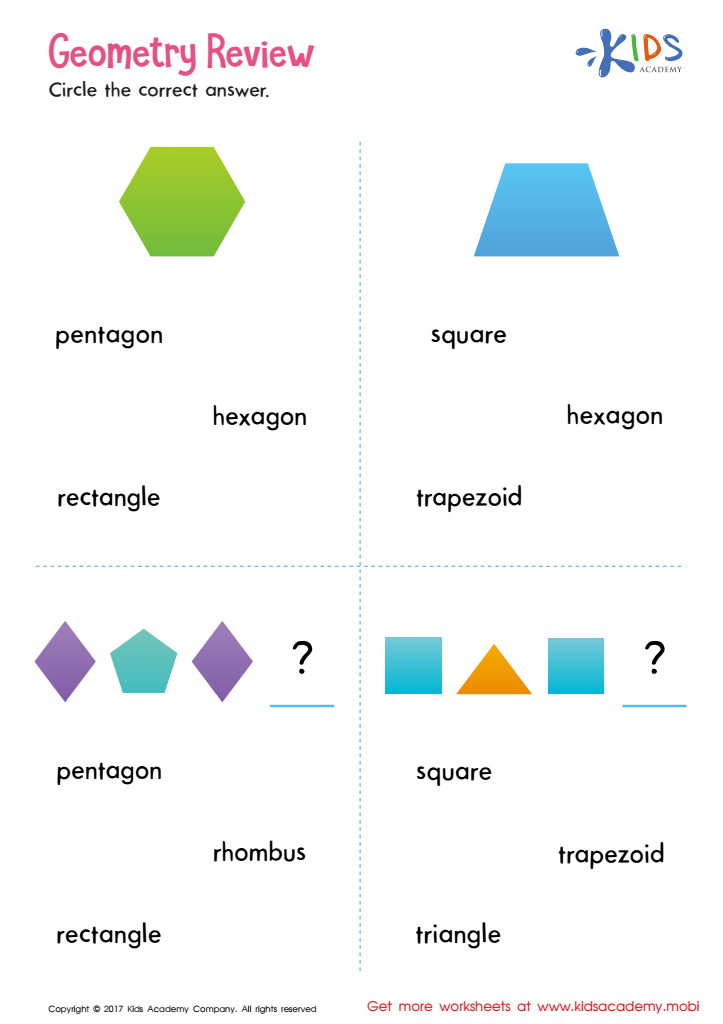

Geometry Review Printable
Shape identification in Grade 2, particularly with 2D shapes, is fundamental for a child’s overall cognitive development. Understanding shapes lays the groundwork for critical thinking and problem-solving skills. When children identify and categorize shapes, they start to recognize patterns and spatial relationships, which are crucial for math literacy and geometry later on.
Teachers and parents should care because shape recognition enhances a child’s ability to describe and visualize the world around them. It fosters communication skills; children learn to articulate their thoughts more effectively by using specific terms associated with different shapes like triangles, circles, and rectangles.
Moreover, engaging in shape identification activities promotes fine motor skills through hands-on learning. Activities involving cutting, drawing, and constructing shapes help refine dexterity, which is vital for writing and other academic tasks.
Shape identification also lays the intercultural groundwork for math skills necessary for real-world applications, such as measuring, architecture, and even art. Ultimately, supporting shape identification in Grade 2 helps build a strong educational foundation, encouraging children to connect their learning to everyday life, therefore fostering a lifelong appreciation for math and critical thinking.

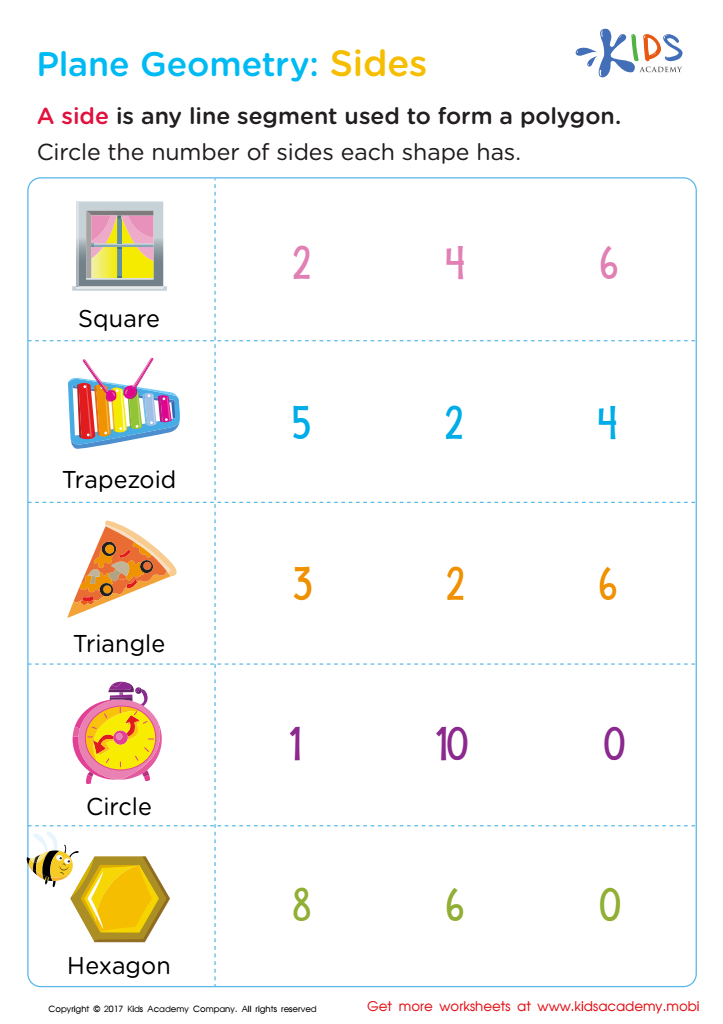
 Assign to My Students
Assign to My Students







